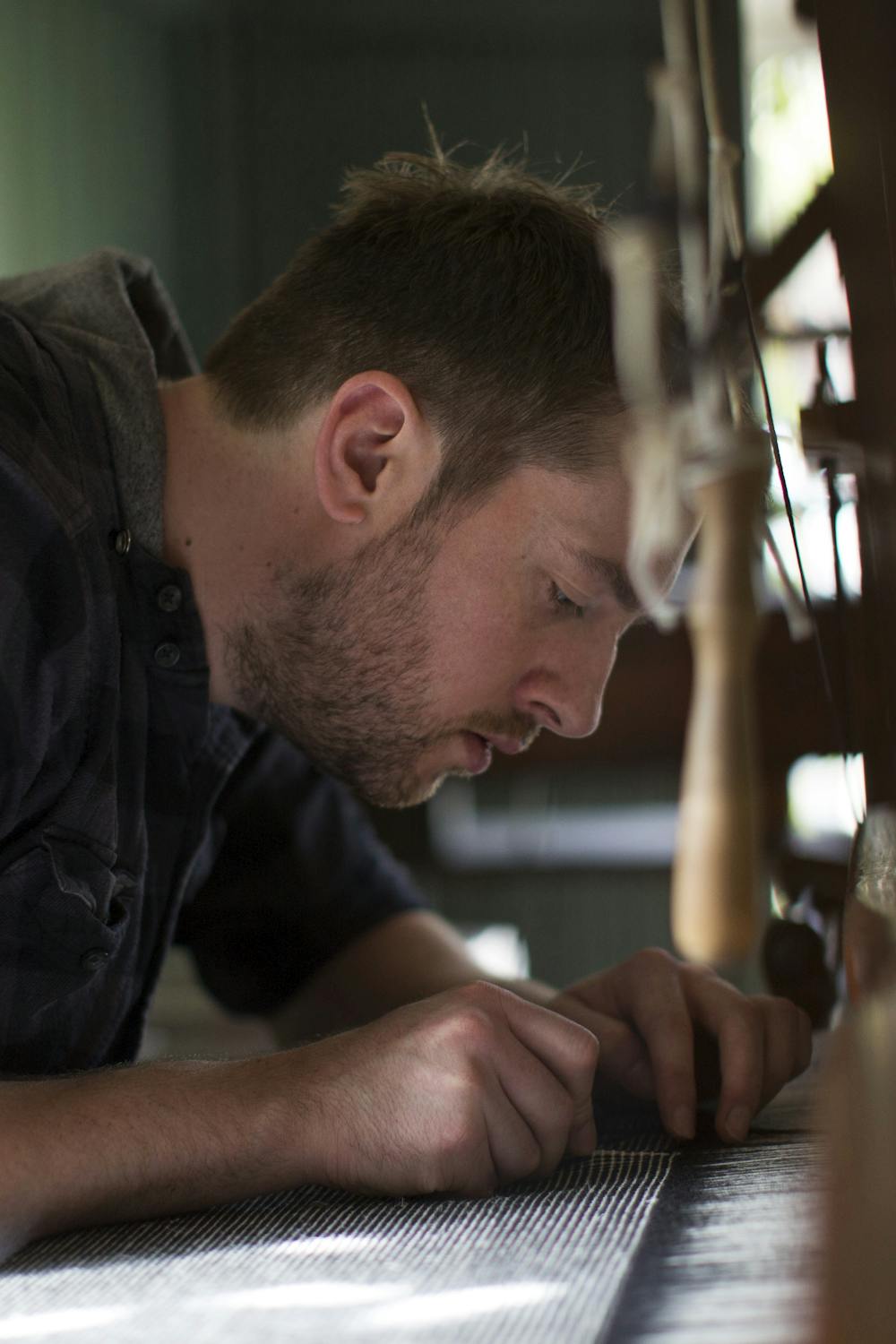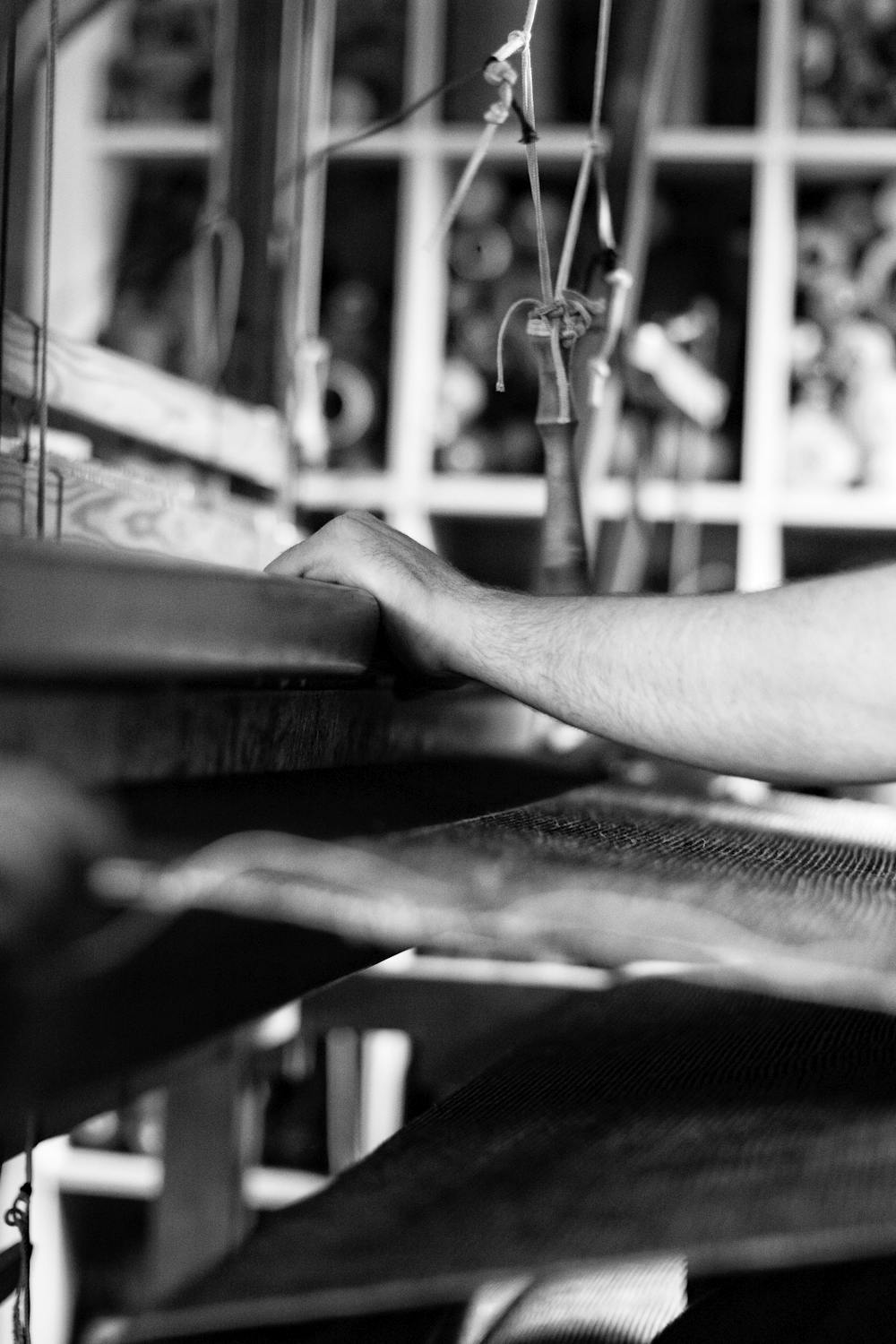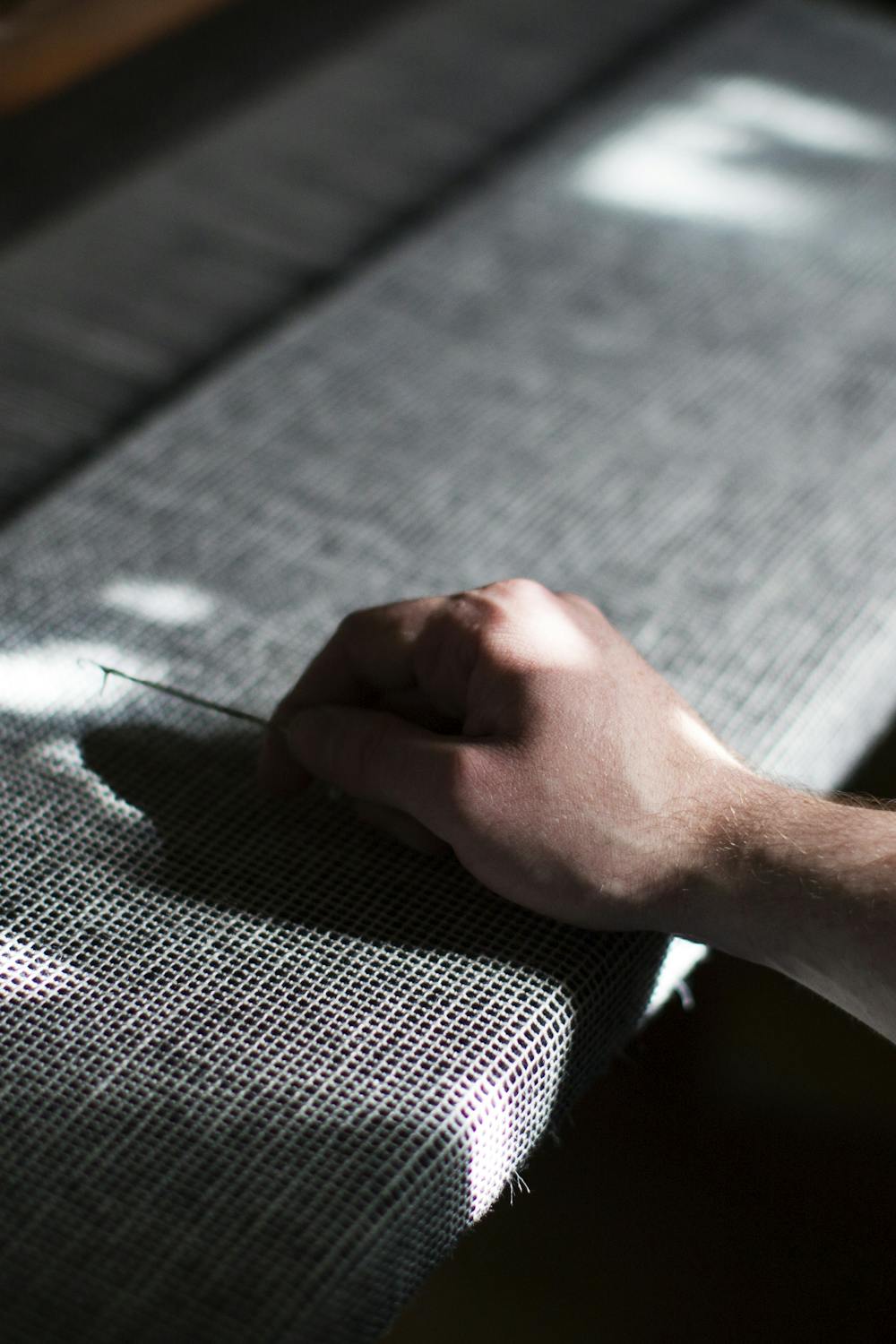
Damien McKeown, 32, on his career with Mourne Textiles and how the QEST apprenticeship grant is helping him train in essential skills.
How did you discover Mourne Textiles?
"A friend of mine posted on Facebook about Mourne Textiles looking for a weaver. She mentioned it would suit someone with a musical background and told me I would be perfect for the job because I play drums. She put me in touch with Mario Sierra, who owns the business."
As a drummer, did you immediately pick up on the rhythms of the looms?
"I did. Each weaver is different. I weave quite straight, almost a 4/4 beat, but other weavers are slightly different. There's definitely a rhythm involved. Rhythm and patience in equal measure. Initially, I didn't have much trouble co-ordinating the shuttle through the shed of the loom, although the motion of pushing the shuttle across was tricky. There's definitely a technique involved in pushing the shuttle back and forth."

Damien Weaving Mourne Check
What is your background?
"I'm from Banbridge in County Down. I studied furniture design at Lurgan Technical College. It wasn't so much about upholstery; more cabinet making. I didn't know much about weaving before I came here, but I had worked in retail outlets for a long time, so I was knowledgeable about sales, dealing with customers, warehousing, and so on."
How did you achieve the QEST apprenticeship grant?
"Mario initiated the process. I had to make an application and visited London for an interview. Five or six people sat around a table and we presented them with a selection of fabrics. They asked questions about the business, my background, what I liked about textiles. We received notification of the grant in late 2016. From there, it has progressed quickly."
What does QEST allow you to do?
"The grant pays a portion of my wage, so Mario can say, 'Today, for a few hours, you can weave and learn the practice'. Making mistakes is part of the learning process in weaving. The grant gives me freedom to practice, improve, and learn from my mistakes. In the future, Mario would like me to get involved with inventory, yarn control, and visiting the factories where the yarn is dyed and spun. The QEST grant will fund these business trips."

Damien Weaving Mourne Check Granite
How long is the programme?
"Three years: in phases. Mario designed a business plan that charts my progression. I'm learning about yarns in the workshop, yarn management and storage, spinning processes. It extends into the basics of fabric production: making the warp, winding the bobbins, hand weaving on traditional looms. I'm learning a series of practical skills on specialist equipment. I helped set up our 1950's Hattersley looms, for example, and get involved in the nuts and bolts of the workshop. QEST allows me to touch on every aspect of the workshop."
Does QEST also allow you to learn business practicalities?
"Yes. It gives me the scope to learn about dealing with retail and wholesale orders, deliveries, and so on. It's not just great training: it will look great on my CV."
What do you hope to get out of QEST by the end of the three years?
"I want to try and learn as much as I can from each of the phases. At the end of it, I'll become a QEST alumni. I hope that after three years I'll also be a fully fledged weaver, confidently know my way around a loom, and efficiently run a workshop. Working here, you have to consider the smallest practicalities: making sure you don't run out of boxes, tape. I'm learning all the basics a workshop requires to keep ticking over."
What do you enjoy about textile weaving?
"It's varied and fulfilling. It's satisfying to watch something being created from the components - basic yarn - and then made into a cushion, blanket, or furnishing fabric. To see a chair, for example, upholstered in that fabric is very cool. There's a lot of job satisfaction. The heritage of Mourne Textiles is special too: knowing that you're involved in something with so much history, reinvented for modern times."
Finally, do you still play drums?
"Yes! I play drums in Owlcrusher, a doom metal band. We're in the process of mixing our first EP."
QEST funds traditional apprenticeships, allowing employees to learn from master craftsman or train in small craft businesses. The grants part fund salaries, training costs, and/or materials. For more information, visit:
www.qest.org.uk/apprenticeships
Photography by Peter Rowen